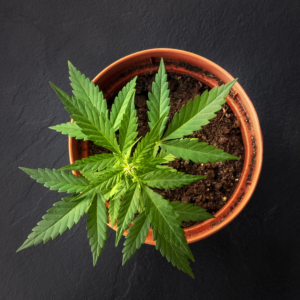Medical marijuana cardholders want to know that the products they are
purchasing are safe, pure, high-quality and accurately labeled.
Unfortunately, that isn’t the case of many edible marijuana products
many in states where marijuana is legal for medical use. In recent
months, labeling inconsistencies across the country have come to light,
and it’s becoming increasingly obvious that the declared THC content on
the labels of many edible marijuana products may be inaccurate.
The Dr. J’s Hash Infusion Problem
Located in Denver, Dr. J’s Hash
Infusion is one of the foremost
edible producers in Colorado. Known for its wide variety of chocolates,
bars, capsules and candies, Dr. J’s was a long-time favorite among
consumers who wanted a high-quality product with a potent level TCH
content.
Everything was clipping along until The Denver Post began conducting
independent
studies
on Dr. J’s products in 2014. When the test
results
came back, the verdict was highly concerning. The vast majority of Dr.
J’s products that listed 100 milligrams of THC on their labels only
contained between .2 and 5 milligrams.
Needless to say, consumers were shocked, and rightfully so. Trusted
companies like Dr. J’s are expected to produce high-quality
marijuana-infused edibles that are accurately labeled, and the glaring
inaccuracies in the labeling and production process beg the question,
"What is going on?" As it turns out, the problem is not limited to Dr.
J’s.
A Systemic Issue
Although the Dr. J’s case was particularly high-profile, labeling
inaccuracies like this are occurring all over the country. According to
a study
conducted by Ryan Vandrey and his team at the Johns Hopkins University
School of Medicine in Baltimore, only 13 out of 75 tested
marijuana-infused edible products featured labels that accurately
presented their THC and CBD content.
Unlike the Denver Post studies, the Vandrey study wasn’t limited to
Colorado. This study tested products made by dispensaries in San
Francisco, Seattle, and Los Angeles and produced dismal results across
the board. When consumers take into account that these inaccuracies are
showing up in medicinal products, the reality is quite shocking.
For patients who have serious medical conditions that require treatment
by marijuana-infused products, the notion that they are getting less THC
or CBD than recommended can be downright infuriating and potentially
dangerous. Serious conditions like multiple sclerosis require precise
THC treatment levels, and it’s safe to say that many patients around the
country are not getting what they paid for from their medical edible
prescriptions.
The Calls for Increased Accountability
Due to the dangers of mislabeled marijuana edibles, consumers across the
country have called for better
regulation
and increased oversight in the marijuana edibles industry. In addition
to exposing mislabeling cases, Vandrey’s studies, and others like it,
have also exposed the fact that some marijuana dispensaries may not
employ any type of quality
control
at any point during the production process.
Few states have specific laws regarding testing requirements for their
medical marijuana-infused edibles. Colorado and Washington both require
strict testing for their non medical products, but the regulations
essentially fall by the wayside when it comes to medically prescribed
edibles.
Unfortunately, there is not much movement to change the laws to require
the accurate labeling of medical cannabis products, but consumers all
agree on one thing — medical marijuana products need to be better
regulated
and must be subject to more accurate labeling practices. In the
meantime, you can protect yourself from mislabeled products by
purchasing only from dispensaries that independently test their products
to ensure they are accurately labeled. Another option is to use products
other than edibles, such as tinctures, oils, flowers, and topicals.






